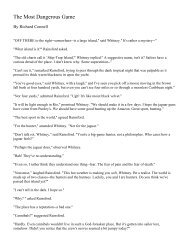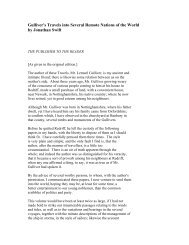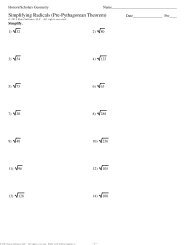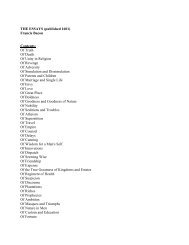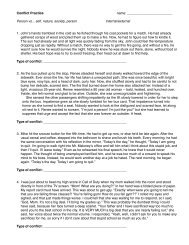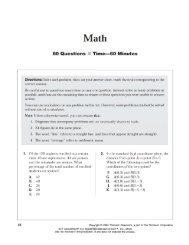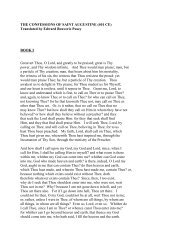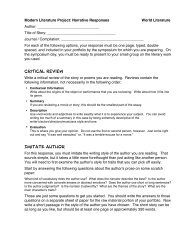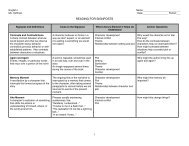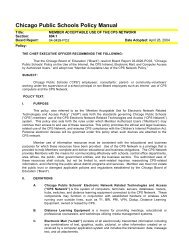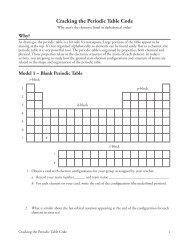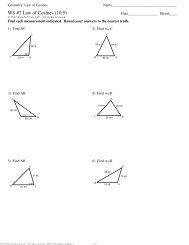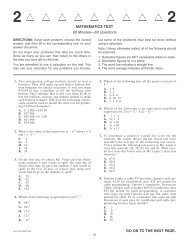CONFUCIUS THE ANALECTS
CONFUCIUS THE ANALECTS
CONFUCIUS THE ANALECTS
Create successful ePaper yourself
Turn your PDF publications into a flip-book with our unique Google optimized e-Paper software.
CHAP. IX. 1. The grand music master, Chih, went to Ch'i.<br />
2. Kan, the master of the band at the second meal, went to<br />
Ch'u. Liao, the band master at the third meal, went to Ts'ai. Chueh,<br />
the band master at the fourth meal, went to Ch'in.<br />
3. Fang-shu, the drum master, withdrew to the north of the<br />
river.<br />
4. Wu, the master of the hand drum, withdrew to the Han.<br />
5. Yang, the assistant music master, and Hsiang, master of the<br />
musical stone, withdrew to an island in the sea.<br />
CHAP. X. The duke of Chau addressed his son, the duke of Lu,<br />
saying, 'The virtuous prince does not neglect his relations. He does<br />
not cause the great ministers to repine at his not employing them.<br />
Without some great cause, he does not dismiss from their offices<br />
the members of old families. He does not seek in one man talents<br />
for every employment.'<br />
CHAP. XI. To Chau belonged the eight officers, Po-ta, Pokwo,<br />
Chung-tu, Chung-hwu, Shu-ya, Shu-hsia, Chi-sui, and Chi-kwa.<br />
BOOK XIX. TSZE-CHANG.<br />
CHAP. I. Tsze-chang said, 'The scholar, trained for public duty,<br />
seeing threatening danger, is prepared to sacrifice his life. When<br />
the opportunity of gain is presented to him, he thinks of<br />
righteousness. In sacrificing, his thoughts are reverential. In<br />
mourning, his thoughts are about the grief which he should feel.<br />
Such a man commands our approbation indeed.'<br />
CHAP. II. Tsze-chang said, 'When a man holds fast to virtue,<br />
but without seeking to enlarge it, and believes right principles, but<br />
without firm sincerity, what account can be made of his existence<br />
or non-existence?'<br />
CHAP. III. The disciples of Tsze-hsia asked Tsze-chang about<br />
the principles that should characterize mutual intercourse. Tszechang<br />
asked, 'What does Tsze-hsia say on the subject?' They<br />
replied, 'Tsze-hsia says:-- "Associate with those who can advantage<br />
you. Put away from you those who cannot do so."' Tsze-chang




